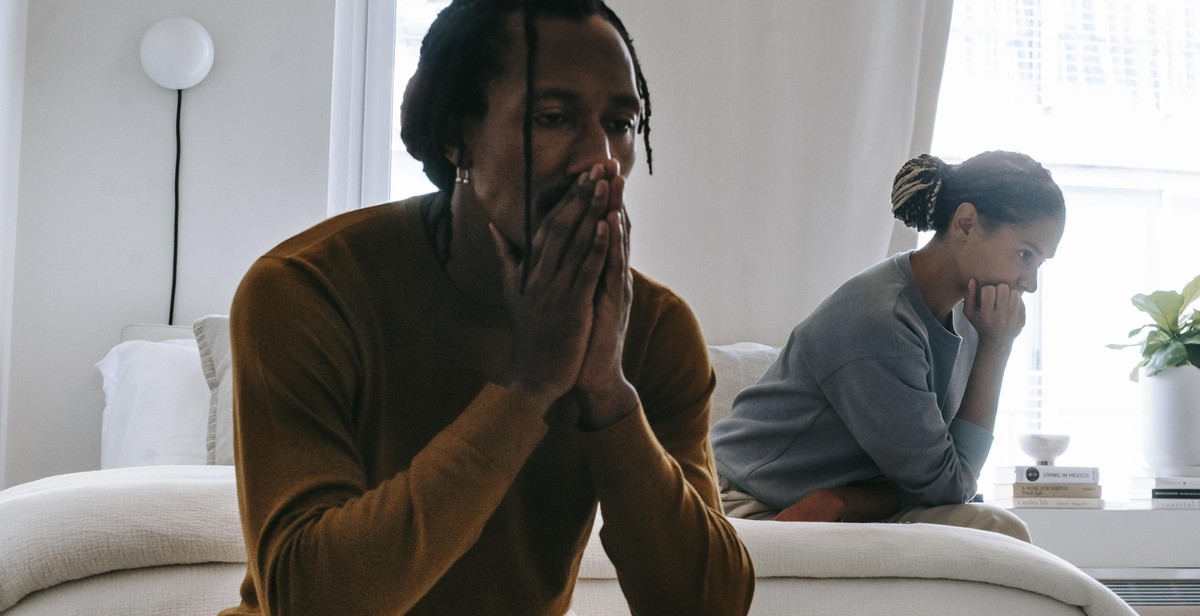Handling Conflict in Love: A Love Guru’s Guide
As a love and relationships psychology guru, I have seen and experienced my fair share of conflicts in relationships. In fact, it was my own personal experience with conflict in love that led me down the path of studying and understanding the intricacies of relationships.
Like many people, I used to believe that conflicts in relationships were a sign of trouble and meant that the relationship was doomed. However, through my own personal experiences and extensive research, I have come to realize that conflicts are a natural and inevitable part of any relationship. It’s how we handle these conflicts that determines the strength and longevity of the relationship.
Throughout my career, I have helped countless couples navigate conflicts in their relationships and have seen firsthand the positive impact it can have on their love lives. In this guide, I will share my expertise and provide practical tips on how to handle conflict in love, so that you too can build a strong and lasting relationship.

Understanding Conflict in Love
Conflict is an inevitable part of any relationship, including romantic ones. It is important to understand why conflict arises and the different types of conflict that can occur in love.
Why Conflict Arises in Love
Conflict can arise in love due to a variety of reasons. One common reason is differences in values, beliefs, and goals. When two people come from different backgrounds or have different life experiences, they may have different perspectives on important issues. This can lead to disagreements and conflicts.
Another reason conflict arises in love is due to unmet expectations. When one partner expects something from the other and it is not fulfilled, it can lead to disappointment and frustration. This can further lead to arguments and conflicts.
Communication breakdown is also a common reason for conflict in love. When partners are unable to express their thoughts and feelings effectively, misunderstandings can occur which can lead to conflicts.
The Different Types of Conflict in Love
There are different types of conflict that can occur in love. These include:
- Verbal conflict: This is when partners engage in arguments and use hurtful words.
- Physical conflict: This is when partners engage in physical altercations such as pushing or hitting each other.
- Passive-aggressive conflict: This is when partners do not express their feelings directly but instead use subtle ways to express their anger or frustration.
- Emotional conflict: This is when partners use emotional manipulation to get their way or to hurt the other person.
- Intellectual conflict: This is when partners have differing opinions and engage in debates or arguments.
Understanding the different types of conflict can help partners identify the root cause of their conflicts and find effective ways to resolve them.
| Conflict Type | Characteristics |
|---|---|
| Verbal conflict | Arguments, hurtful words |
| Physical conflict | Pushing, hitting |
| Passive-aggressive conflict | Subtle expressions of anger or frustration |
| Emotional conflict | Emotional manipulation |
| Intellectual conflict | Debates, arguments |

The Negative Effects of Conflict in Love
Conflict in love can have a wide range of negative effects on individuals and relationships. As a love and relationships psychology guru, I have seen firsthand the damaging impact of unresolved conflicts.
Emotional Distress
One of the most significant negative effects of conflict in love is emotional distress. When couples argue or fight, it can cause intense feelings of anger, sadness, and frustration. These emotions can be overwhelming and lead to anxiety, depression, and other mental health issues. The emotional turmoil caused by conflict can also affect an individual’s ability to focus, make decisions, and perform daily tasks.
Physical Health Issues
Conflict in love can also have physical health consequences. The stress and tension that come with unresolved conflicts can lead to physical symptoms such as headaches, fatigue, and even chronic pain. Studies have shown that stress can weaken the immune system, making individuals more susceptible to illness and disease.
Strained Relationships
Unresolved conflicts can strain even the strongest of relationships. If conflicts are left unresolved, they can lead to resentment, mistrust, and even the breakdown of the relationship. Communication is a crucial part of any healthy relationship, and when conflicts arise, it is essential to address them openly and honestly. Failure to do so can cause irreparable damage to the relationship.
- Emotional distress
- Physical health issues
- Strained relationships
It is important to recognize the negative effects of conflict in love and take steps to address them. Seeking the help of a therapist or counselor can be an effective way to learn healthy communication skills and resolve conflicts in a constructive manner.

Effective Strategies for Handling Conflict in Love
As a love and relationships psychology guru, I have encountered countless couples who struggle with handling conflicts in their relationships. However, conflicts are inevitable in any relationship and what sets successful couples apart is their ability to resolve conflicts effectively. Here are some effective strategies for handling conflicts in love:
Self-Reflection
When conflicts arise, it is important to take a step back and engage in some self-reflection. This involves taking responsibility for your actions and acknowledging your role in the conflict. Ask yourself what triggered the conflict and how you can avoid similar conflicts in the future. By taking responsibility for your actions, you can avoid blaming your partner and instead focus on finding a solution together.
Effective Communication
Effective communication is key to resolving conflicts in any relationship. It involves expressing your thoughts and feelings in a clear and respectful manner. Avoid using accusatory language and instead use “I” statements to express how you feel. For example, instead of saying “You always do this”, say “I feel hurt when this happens”. This allows your partner to understand your perspective without feeling attacked.
Active Listening
Active listening involves paying attention to your partner’s perspective and understanding their point of view. It involves acknowledging their feelings and reflecting back what they have said. This helps to create a safe and supportive environment for resolving conflicts.
Finding Common Ground
When conflicts arise, it is important to find common ground. This involves identifying areas of agreement and working towards a solution that benefits both parties. By focusing on common ground, you can avoid getting stuck in a cycle of blame and instead work towards a solution together.
Compromise
Compromise is an essential part of resolving conflicts in any relationship. It involves finding a solution that meets the needs of both parties. This may involve giving up something in order to reach a mutually beneficial solution. However, compromise should never involve sacrificing your values or compromising your integrity.
By using these effective strategies for handling conflicts in love, you can build a strong and healthy relationship that can withstand any challenge.

The Importance of Seeking Professional Help
As a love and relationships psychology guru, I have seen countless couples struggle with conflict in their relationships. While some may try to handle these issues on their own, seeking professional help can make a significant difference in resolving conflicts and improving your relationship.
How a Love Guru Can Help
A love guru is a professional who has extensive knowledge and experience in the field of love and relationships. They can provide valuable insights into the dynamics of your relationship and offer practical solutions to help you navigate through conflicts.
Love gurus can help you identify the root cause of your conflicts and provide you with the right tools to resolve them. They can also help you improve communication skills, manage expectations, and develop healthy relationship habits that can strengthen your bond.
When to Seek Professional Help
It is important to seek professional help when you feel like you are unable to resolve conflicts on your own. If you find yourself in a cycle of arguments and misunderstandings, or if your conflicts are affecting your daily life, seeking professional help can be a game-changer.
Some signs that you may need professional help include:
- Constant arguing and bickering
- Feeling disconnected from your partner
- Difficulty communicating effectively
- Trust issues or infidelity
- Feeling overwhelmed or hopeless about your relationship
Remember, seeking professional help is not a sign of weakness. It takes courage to acknowledge that you need help and take steps to improve your relationship. With the right guidance and support, you can overcome conflicts and build a stronger, healthier relationship.

Conclusion
As a love and relationships psychology guru, I have seen firsthand how conflicts can make or break a relationship. It’s important to remember that conflict is a natural part of any relationship, and it’s how we handle it that truly matters.
When faced with conflict, it’s important to take a step back and analyze the situation. Try to see things from your partner’s perspective and communicate openly and honestly. Use “I” statements instead of “you” statements to avoid blaming and accusing your partner.
It’s also important to remember that compromise is key. Relationships are about give and take, and finding a solution that works for both parties is crucial. Don’t be afraid to seek outside help, whether it’s from a therapist or a trusted friend or family member.
Lastly, remember that conflicts can often bring couples closer together. By working through issues together, you can build a stronger, more resilient relationship. So, embrace conflict and use it as an opportunity to grow and strengthen your love.
| Key Takeaways: |
|
